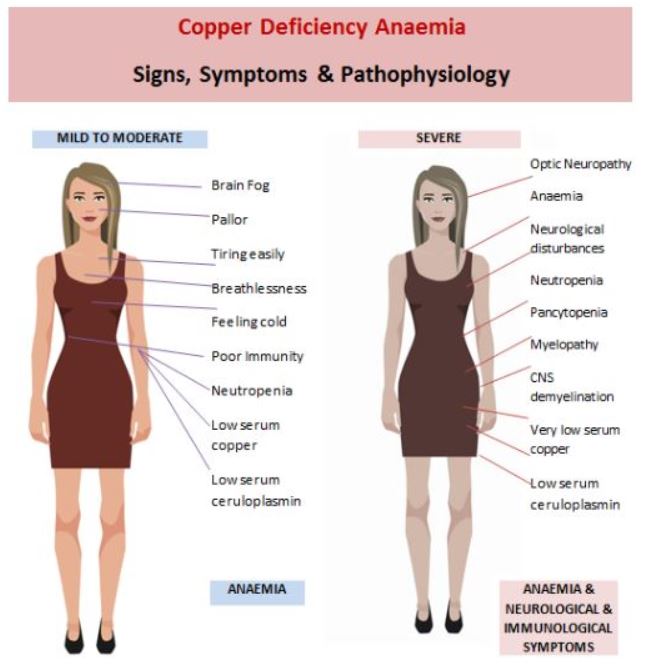Pyrroluria - Medical Condition or Biomarker?
InterClinical eNews March 2019, Issue 90 This month's issue explores the evidence for Pyrroluria, and asks the question - is it a discrete medical condition or is it a biomarker of other pathology? We take a look into the history, research findings and treatment options. Detection Hydroxyhemopyrrolin-2-one (HPL) or "mauve factor" was first discovered in 1958 in the urine Dr Hoffer's psychiatric patients. It was named after the colour it appeared in chromatograph assays. It was later identified by a fellow researcher, Irvine, as...
Chronic Beryllium Disease – Who is at Risk?
InterClinical eNews February 2019, Issue 89 In this month's issue, we take a look at all things beryllium. We consider its properties, commercial uses, populations at risk from contamination and the consequences of short-term and long-term exposure. Beryllium's Properties Beryllium is a very strong, lightweight, corrosion resistant and heat absorptive material. It generates and absorbs neutrons, conducts electricity and is transparent to X-rays. This unique set of properties make it highly desirable for a number of industrial uses. (1) Industrial Uses Beryllium...
Glycine – an Unsung Hero
InterClinical eNews February 2019, Issue 89 Glycine is the smallest, conditionally-essential, amino acid. It is a crucial structural component in the body and exerts a far-reaching range of biologically moderating effects within the body. It can be synthesised in the body from serine, threonine, choline, and hydroxyproline via metabolism in the liver and kidneys.(1,2,3) Mineral Carrier Glycine's small size and neutral charge make it an ideal ligand for facilitating the delivery of minerals within the body; increasing its ease of absorption. Glycine improves the solubility of the whole compound leading...
Eucommia Ulmoides – The Bone Protector
InterClinical eNews May 2019, Issue 92 Eucommia ulmoides (EU) also known as 'Du Zhong' in the Chinese language, has a long history of use in Traditional Chinese Medicine (TCM) as a yang tonic for the kidneys and liver and as a bone and sinew (tendon) strengthener. In TCM it is indicated for bone weakness and pain in the lower back, joint pain or weakness particularly in the knees, and muscular and tendon weakness in general. In this...
Heart Disease, Copper and Soft Drinks
InterClinical eNews June 2019, Special Edition Recently a popular news story warned that high, long term consumption of sweetened beverages such as soft drinks and soda may increase health risks. A study published in the journal Circulation (1) found that sugar-sweetened beverages, as well as artificially sweetened beverages, were associated with mortality rates. The study consisted of over 37,000 men and over 80,000 women who were followed for over 20 years. Their...
Sulphites, SIBO & the Maladaptive Response
InterClinical eNews April 2019, Issue 91 This month's issue explores the metabolic disorder sulphite syndrome. We take a look at why sulphites accumulate, highlight the key elements of the symptom picture, discuss how the body adapts, and consider whether some treatment-unresponsive subsets with gut conditions such as SIBO might fit this profile. Lastly, we discuss simple strategies for treatment. Sulphur's Roles in the Body Sulphur's many important roles include being a component of cell structural integrity, gastrointestinal tract lining, connective tissue,...
Hydrochloric Acid – Why it’s Essential for Optimal Digestion
InterClinical eNews December 2018, Issue 87 The festive season is upon us, bringing matters of digestion into focus. In this issue, we go back to the basics, exploring the physiology and biochemistry of gastric acid production. In particular, we look at the importance of acidification and the role of nutrients and metabolites in hydrochloric acid production. The Importance of Acidification The acidification of the stomach contents yields several digestive benefits. Firstly, it denatures...
Anaemia and the Copper-Deficient Patient
InterClinical eNews November 2018, Issue 86 Copper deficiency is a less common and under-recognised cause of anaemia, producing an anaemia unresponsive to iron, vitamin B12 or folate. In this journal article four expert reviewers highlight the key features, the likely causes, the populations affected and how to treat the symptoms. Copper Deficiency Symptoms Mild copper deficiency is largely indistinguishable from other types of anaemia, apart from a persistent neutropenia. As it progresses in severity the symptom picture becomes...
Conception – Zinc’s Critical Role in Early Egg Maturation
InterClinical eNews October 2018, Issue 85 With up to 15 % of Australian couples struggling to conceive, infertility has become an important public health concern. (1) Whilst the causes of infertility may be multifactorial, researchers at Pennsylvannia State University desired to understand the role of zinc in early infertility, particularly egg quality, viability and maturation. They also sought to determine how early in the egg's development zinc begins to affect egg quality. (2) The Study The researchers collected preantral...
Vitamin C – Can It Improve Acute Exam Anxiety?
InterClinical eNews September 2018, Issue 84 With HSC and university exams looming we are all on the lookout for anything safe and effective for short-term anxiety. Cumulative evidence from preclinical studies demonstrates that short-term administration of ascorbic acid - or vitamin C - can confer positive effects on mood. Given these findings, researchers at the Federal University of Catalina decided to investigate the effect of just a single dose of ascorbic...









